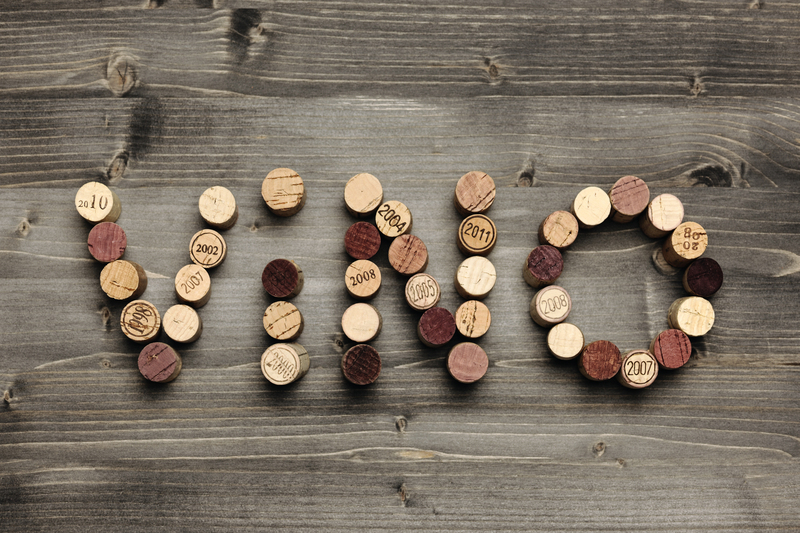Find Peace with Decluttering and Minimalist Living: Your Roadmap to Calm and Clarity
In today's fast-paced, noisy world, seeking tranquility at home feels more important than ever. Decluttering and minimalist living go hand-in-hand as powerful methods for cultivating not only a tidy home, but also a peaceful mind. This comprehensive guide will explore how minimizing possessions fosters serenity, share the physical and psychological benefits of embracing minimalism, offer practical tips to start your journey, and answer common questions about minimalism and decluttering.

Understanding Decluttering and Minimalist Living
What Is Decluttering?
Decluttering is the intentional process of removing unnecessary items from your living environment. Whether you're sorting through a single drawer or an entire house, decluttering involves asking yourself: Do I really need or love this? Items that don't serve a purpose or bring joy are removed, resulting in a cleaner, more functional space.
Defining Minimalist Living
Minimalist living involves making conscious choices to live with less -- but better. Minimalism isn't about deprivation; instead, it's about surrounding yourself with things that matter, reducing distractions, and focusing on what truly brings you happiness and peace. By adopting a minimalist lifestyle, you free up physical, mental, and emotional space.
Why Embrace Decluttering and Minimalism?
Many people discover that finding peace with decluttering and minimalist living leads to a range of transformative benefits. It's more than just a design trend; it's a lifestyle change that can ripple positively throughout your life.
Physical Benefits
- Less Cleaning: Fewer things mean less to clean and maintain, saving valuable time and energy.
- More Space: Open, organized environments are less stressful and more functional.
- Enhanced Productivity: Cluttered spaces can sap energy and hinder focus, while tidy surroundings encourage efficiency.
Psychological Benefits
- Reduces Stress: Studies have shown a clear link between clutter and increased cortisol (stress hormone) levels.
- Boosts Mental Health: An orderly environment can elevate mood and decrease feelings of overwhelm.
- Promotes Mindfulness: Living minimally encourages you to reflect on your habits and values.
Financial and Environmental Benefits
- Less Spending: Consuming less means saving more money for experiences and essentials.
- Eco-Friendly: Minimalism leads to a reduction in waste, and encourages thoughtful consumption and sustainability.
Steps to Find Peace through Decluttering
Ready to experience the power of minimalist living? Start your decluttering journey with these practical steps:
-
Set Your Intentions
Ask yourself why you want to declutter. Are you looking for more space, less stress, a fresh start? Identifying your motivations will keep you grounded and inspired.
-
Start Small
Tackling an entire house can feel overwhelming. Begin with one drawer, one shelf, or a single room. Celebrate small wins to build momentum.
-
Sort and Categorize
Separate items into categories: keep, donate, recycle, toss. Be honest -- if something hasn't been used or appreciated for months, let it go.
-
Adopt the One-In, One-Out Rule
For every new item that enters your home, remove one. This simple strategy helps maintain a clutter-free environment.
-
Organize What's Left
Designate a spot for every belonging. Use baskets, bins, and dividers for easy organization -- but avoid buying more than you need.
-
Develop Daily Habits
Avoid future clutter by tidying as you go. A quick 10-minute nightly cleanup can make a world of difference.
Tips for Embracing Minimalist Living
Once you've decluttered, living a minimalist lifestyle involves ongoing decisions and habits. Here are some strategies to help make minimalism part of your everyday life:
-
Be Intentional with Purchases
Before buying something new, ask yourself if it aligns with your needs, values, and space. Will it improve your life or add unnecessary clutter?
-
Focus on Experiences Over Things
Research shows that experiences bring more lasting happiness than possessions. Invest in trips, learning, or quality time with loved ones instead of accumulating more stuff.
-
Practice Gratitude
Appreciate what you already have. Cultivating gratitude can shift your mindset away from consumerism and toward contentment.
-
Create a Calming Aesthetic
Opt for a home design that features neutral colors, open space, and natural materials. This kind of environment naturally supports a feeling of peace and calm.
Decluttering and Minimalist Living: Practical Room-by-Room Guide
To make the transition less daunting, break down your decluttering and minimalist living journey by area:
Living Room
- Remove excess furniture and decor. Keep only what's functional and loved.
- Store remote controls, magazines, and other small items in designated places.
- Leave surfaces like coffee tables clear for an open, tidy look.
Kitchen
- Limit small appliances to those you use regularly.
- Organize pantry items and toss expired goods.
- Use clear containers for bulk foods and store items vertically for easy access.
Bedroom
- Keep bedside tables free of clutter.
- Regularly review clothing and donate or recycle unused items.
- Maintain under-bed and closet storage to minimize visible mess.
Bathroom
- Dispose of old or unused toiletries.
- Use drawer dividers for small items.
- Store daily-use products at eye level, extras in cabinets.
Decluttering and Minimalism: Common Challenges & Solutions
It's natural to face obstacles when transitioning to a minimalist lifestyle. Here's how to overcome the most common hurdles:
-
Sentimental Items:
It's okay to keep a few cherished mementos, but try to limit the number. Consider photographing items with emotional value, then letting go of the physical object.
-
Family Resistance:
Lead by example rather than forcing others. Share your experiences and highlight the benefits you've enjoyed, but respect their boundaries.
-
Lack of Time:
Declutter in short, focused bursts (e.g., 15 minutes a day) instead of attempting one massive overhaul. Consistency matters more than speed.
Minimalism and Mindfulness: Finding True Peace
The benefits of decluttering and minimalist living extend far beyond neat spaces. Minimalism naturally fosters mindfulness--the art of living in the present moment and truly appreciating life as it happens.
-
Intentionality:
Minimalism encourages intentional choices, whether in decorating, shopping, or scheduling your days. This leads to greater self-awareness and satisfaction.
-
Less Distraction:
Fewer possessions = fewer distractions. This makes it easier to savor experiences, relationships, and quiet moments.
-
Deeper Connections:
With less time spent managing things, you free time and energy for nurturing relationships and meaningful activities.
Decluttering and Minimalist Living for Families
Minimalist living isn't only for singles or couples -- it works beautifully for families too! Children can learn the value of caring for their things, appreciating what they have, and finding joy in experiences rather than possessions. Here are a few family-focused strategies:
- Involve Everyone: Let kids choose which toys or clothes to keep. Teaching them to declutter boosts confidence and decision-making skills.
- Set Limits: Designate physical boundaries for toys and clothes. When a bin or shelf is full, review what can be donated or shared.
- Create Routines: Make regular tidying a habit and celebrate together after each decluttering session.
- Prioritize Shared Experiences: Plan family activities that don't involve more stuff -- museums, parks, or crafting together at home!
Decluttering Digital Life: Minimalism Beyond the Home
While physical clutter is the most visible, digital clutter also contributes to stress and distraction. Apply minimalism to your digital life with these tips:
- Organize Files: Sort documents into meaningful folders and delete duplicates or outdated files regularly.
- Email Inbox: Unsubscribe from unnecessary newsletters and aim for "inbox zero" at least weekly.
- Streamline Social Media: Limit your platforms, unfollow accounts that don't inspire or inform, and set boundaries on usage.
- Declutter Devices: Only keep apps you actually use. Turn off non-essential notifications for fewer digital distractions.

Frequently Asked Questions about Decluttering and Minimalist Living
1. Do I have to get rid of everything to be a minimalist?
No! Minimalism does not mean you must live with only the bare essentials. It's about intentionality--keeping what adds value and letting go of the rest.
2. Is minimalist living expensive?
Absolutely not. In fact, minimalism usually saves money by encouraging you to buy less and appreciate what you already own.
3. Can I practice minimalist living with children or a large family?
Yes! Involving children in the process can be very beneficial and helps teach valuable lessons about gratitude and stewardship.
4. I feel guilty throwing things away--what can I do?
Donate, recycle, or rehome items where possible to alleviate guilt and help others. Remember, keeping unused things brings little benefit to you or anyone else.
5. How do I stay motivated to continue?
Monitor your progress, celebrate milestones, and regularly remind yourself of your initial goals. The peace and freedom you gain will inspire ongoing commitment.
Conclusion: Reclaim Your Peace--Start Decluttering and Embrace Minimalist Living
Finding peace with decluttering and minimalist living is a journey, not a destination. It's about aligning your environment with your values, freeing yourself from the burden of excess, and creating a sanctuary of calm where you can truly thrive. By taking small, actionable steps, anyone can experience the transformative benefits of minimalist living: lower stress, more time, meaningful connections, and a deeper sense of contentment.
Ready to create your peaceful, clutter-free haven? Begin your decluttering journey today and experience how minimalist living can help you find calm, focus, and joy in every day.